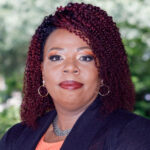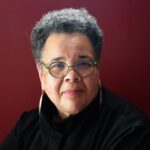online and f2f
Syllabi - Program: online and f2f - 16 results
Select an item by clicking its checkboxA 2014 course taught by Taylor Halverson at Indiana University examines the Abraham stories of the Hebrew Bible and the "emergence of Judaism and its use of Abraham to create religious identity" and how Christianity and Islam also look to Abraham as a "guiding figure in religious development."
A 2011 course by Ruben Garrote at Florida International University offers an introduction "to the key issues surrounding the interpretation and implementation of the First Amendment protection of freedom of religion . . . from the time before the American Revolution to the present."
A 2013 course by Gordon Jensen at Saskatoon Theological Union focuses "on reformation women and their contributions."
A 2012 course by Richard Taylor at Marquette University "on the nature of the human intellect" as understood by Thomas Aquinas and his sources.
A 2017 course by Kon Hwon Yang at Gateway Seminary provides a "general introduction to the content, background, interpretation, and critical studies of the Old Testament."
A 2000 course by Alan Altany at Marshall University "is an introduction to the major religions of the world: Hinduism, Buddhism, Taoism, Judaism, Christianity, Islam."
A course by Ehud Ben Zvi and Steven Engler at the University of Calgary surveys the "historical aspects of these traditions . . .[however] emphasis will be on the way in which these traditions are 'at work' today."
A 2016 course by Ken Derry at the University of Toronto provides a "basic introduction to the academic study of religion, using examples from contemporary popular culture as well as Indigenous and other religious traditions."
A 2011 course by Christine Gudorf at Florida International University
A 2014 course by Rob O'Lynn at Kentucky Christian University focuses "on current aspects of homiletics and crafting Biblical messages that are theologically and culturally relevant."
A 2015 course by Malinda Elizabeth Berry at Anabaptist Mennonite Biblical Seminary explores "various perspectives on the meaning of justice, economic 'development' in the global village, economic systems and theories, economics and ecology, business ethics, economics in the church, and economic faithfulness for individual Christians."
A 2018 course by Carmichael Crutchfield at Memphis Seminary prepares "educators, pastors and other leaders in the church to effectively design, implement, lead, and evaluate Christian education endeavors and to gain a working understanding of Spiritual Formation."
A 2014 course by Brooke Lester at Garrett-Evangelical Theological Seminary explores "how the OT text functions in its own literary and historical context, then also how the reference functions in its own NT context."
A 2016 course by Paul Capetz at United Theological Seminary of the Twin Cities "introduces students to the history of Christian theology from the beginnings of the patristic period (c. 100 CE) to the eve of the Enlightenment (c. 1750)."
A 2017 course by Timothy O'Brien at North Park University Chicago "addresses the knowledge and skills necessary to provide financial leadership in a nonprofit organization. . . . the emphasis is on leading the financial function. Included in this course are appropriate financial and management strategies, GAAP, management control, long and short range planning, financial statement analysis, financial resource management, compliance and financial decision making tools.
A 2016 course by Ched Myers at United Theological Seminary of the Twin Cities "examines . . . [economic justice] through the biblical lens of âSabbath Economics,â which identifies relational sufficiency as the divine vision for human life, and structural socio-economic disparity as an essential characteristic of human sin."

